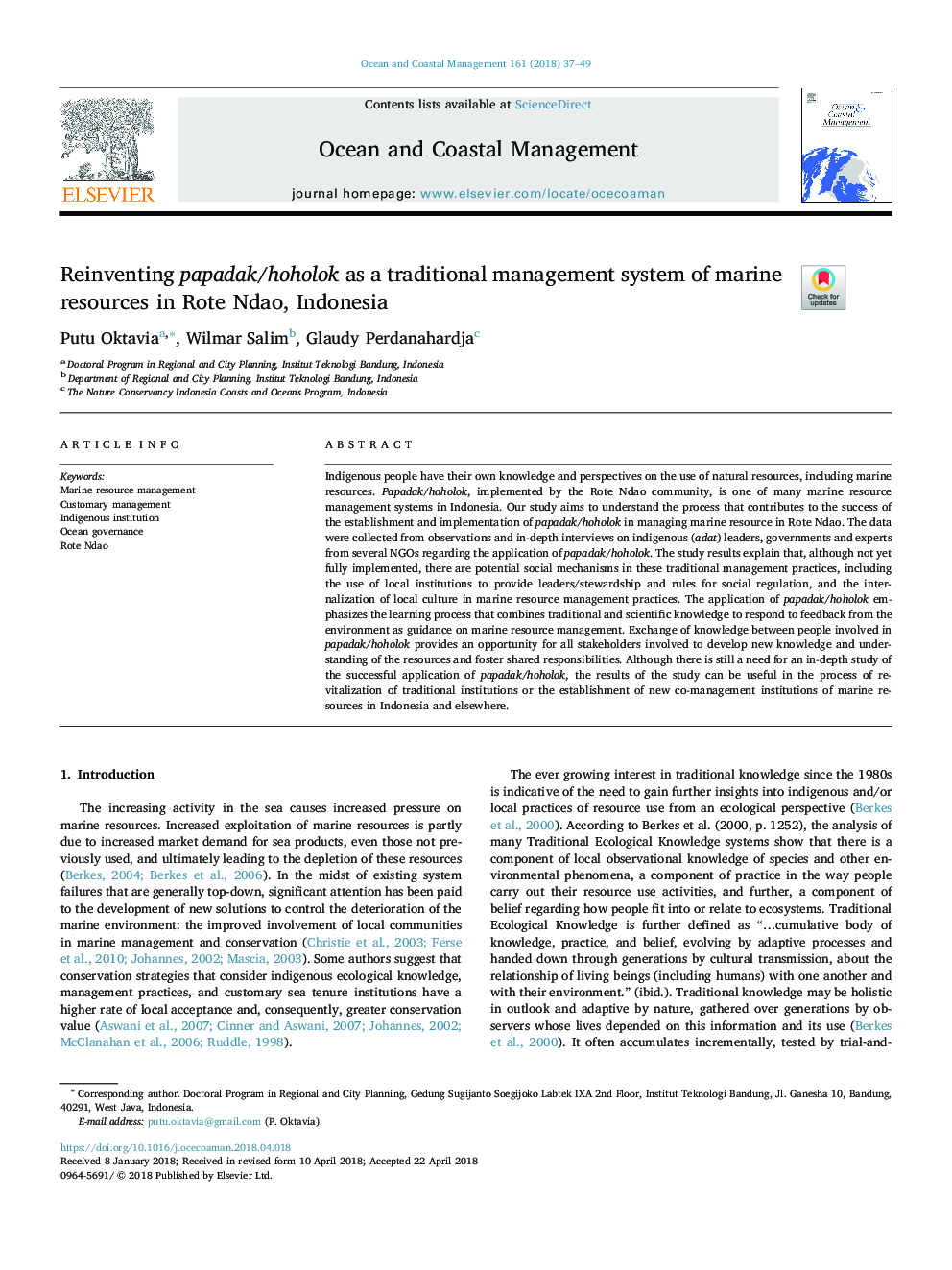| Article ID | Journal | Published Year | Pages | File Type |
|---|---|---|---|---|
| 8060606 | Ocean & Coastal Management | 2018 | 13 Pages |
Abstract
Indigenous people have their own knowledge and perspectives on the use of natural resources, including marine resources. Papadak/hoholok, implemented by the Rote Ndao community, is one of many marine resource management systems in Indonesia. Our study aims to understand the process that contributes to the success of the establishment and implementation of papadak/hoholok in managing marine resource in Rote Ndao. The data were collected from observations and in-depth interviews on indigenous (adat) leaders, governments and experts from several NGOs regarding the application of papadak/hoholok. The study results explain that, although not yet fully implemented, there are potential social mechanisms in these traditional management practices, including the use of local institutions to provide leaders/stewardship and rules for social regulation, and the internalization of local culture in marine resource management practices. The application of papadak/hoholok emphasizes the learning process that combines traditional and scientific knowledge to respond to feedback from the environment as guidance on marine resource management. Exchange of knowledge between people involved in papadak/hoholok provides an opportunity for all stakeholders involved to develop new knowledge and understanding of the resources and foster shared responsibilities. Although there is still a need for an in-depth study of the successful application of papadak/hoholok, the results of the study can be useful in the process of revitalization of traditional institutions or the establishment of new co-management institutions of marine resources in Indonesia and elsewhere.
Related Topics
Physical Sciences and Engineering
Earth and Planetary Sciences
Oceanography
Authors
Putu Oktavia, Wilmar Salim, Glaudy Perdanahardja,
